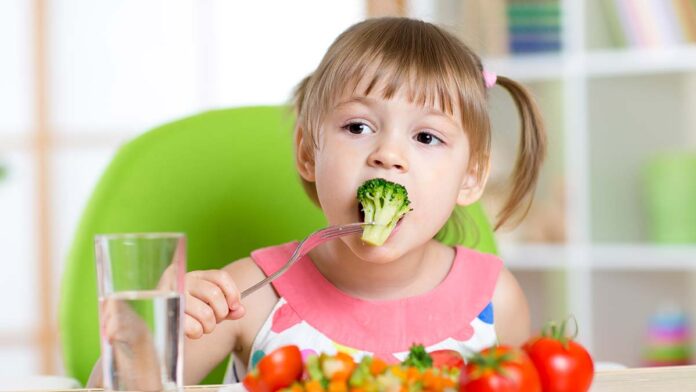First time parents might face many problems in raising their child. This includes taking care of their diet and daily schedule. Diet plays a major role in influencing the physical and mental growth of your kid. There are certain essential nutrients that shouldn’t miss out from their schedule. A growing child needs a good amount of vitamins and minerals for adequate energy, strength, mental development and immunity. Keeping a balanced diet is important for your child’s well being. Parents need to make sure that their kid is eating items from every food group. Read the article further to know about important nutrients for children every parent should know about.
Important nutrients for children
There are some key nutrients that play a vital role in childhood development. You need to feed the child with these nutrient rich foods on a daily basis. Here is a list of 6 must have nutrients for children every parent should know about:
1. Calcium
Calcium is one of the most important nutrients for the growth and development of your child’s body. Calcium is beneficial for your child’s bone and teeth growth. It makes them stronger and prevents conditions related to it. It is also important to prevent blood clotting and for nerve, muscle, and cardiovascular function. Every parent should include a good amount of calcium in their child’s daily diet. Calcium rich foods include green leafy vegetables and mostly dairy products such as milk, yoghurt, soya, cheese, and paneer.
2. Protein
Another important nutrient for your child is protein. Another name for protein is body-building nutrient. It is rich in amino acids that play a crucial role in forming the body cells and tissues. If your kid is less than two years old, make sure to ask your pediatrician before feeding him with nuts, seeds and other high protein foods. Protein is good for the development of betterment of a child’s immune system too. Best sources of protein for children are milk and dairy products, eggs, fish, chicken, lentils, and beans.
3. Iron
Iron deficiency is one of the most common nutrient deficiencies in children, mostly girls. Iron is essentially required to improve the growth and development process, specifically in young kids. The best sources of iron are poultry items, dark meat, lean meat, green leafy vegetables, raisins, cereals and legumes. Iron-deficiency anemia in children can cause a delay in cognitive and motor skill development. Your child needs iron, ranging from 7 to 15 milligrams in a day, but it also depends on the kid’s gender and age.
4. Vitamins
There are many vitamins that play distinct roles in enhancing a child’s growth and development. One of the major benefits of Vitamin D is that it makes your child’s bone stronger. It improves calcium absorption as well. On the other hand, vitamin A promotes eye health and better functioning of the immune system. It makes your immunity stronger, which helps in combating illnesses. Vitamin C and E are also vital nutrients to enhance the immune system, whereas vitamin B helps in many other bodily functions.
5. Fats
Fats are also an incredible source of energy for children. In fact, they can be easily stored in your child’s body. They are also an essential part to fulfill other nutritional requirements of the body. Fatty acids can help in developing the structure and composition of human cells. Some of the best sources of healthy fats are meat, nuts, fish, and whole milk dairy products.
6. Carbohydrates
Along with fats, carbohydrates are also an important source of energy for the body. Most people recommend to cut carbs, but this mostly does not apply on children. They help in using the body fat and protein of your child to develop and repair tissues. This nutrient is available in many different forms, including, sugar, starch, and fiber. However, it is recommended that children should be consuming more of starch and fiber, instead of increasing sugar intake. Foods that contain high levels of carbohydrates are breads, rice, cereals, potatoes, etc.


